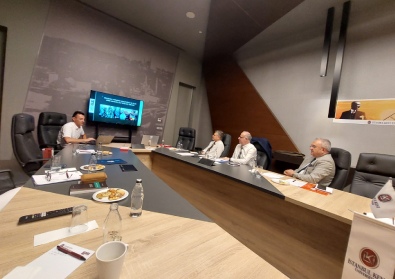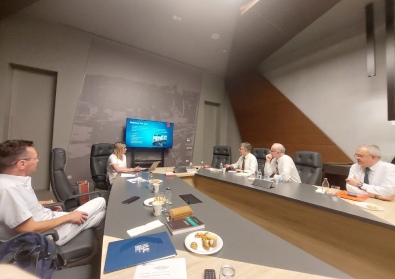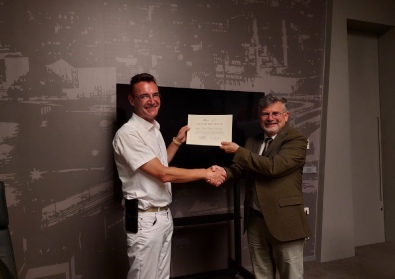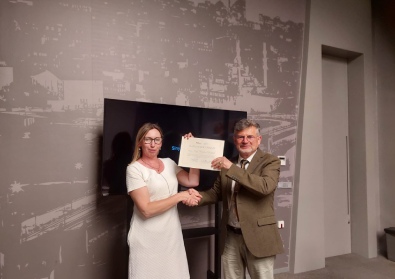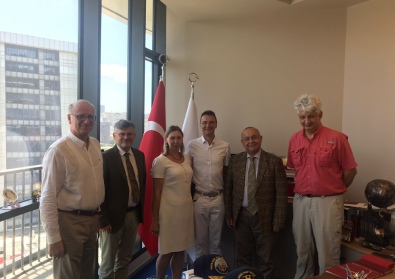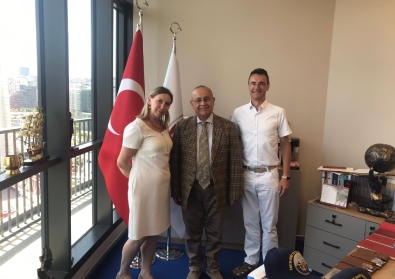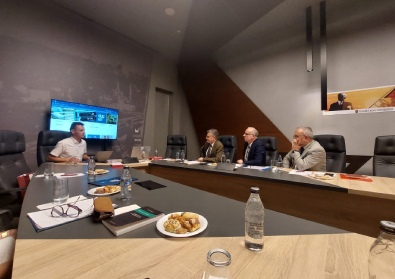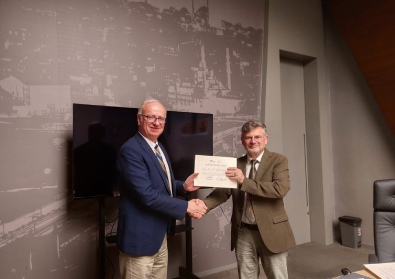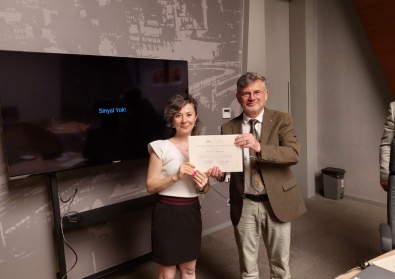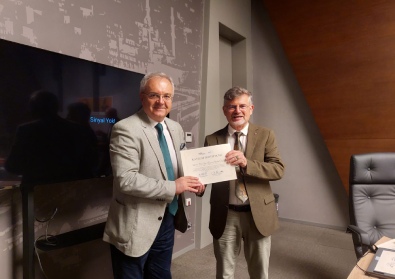Erasmus Faculty Exchange
Date : 27.06.2024
Prof. Dr. Maciej Münnich and Prof. Dr. Monika Münich from the Catholic University of Lublin, Poland, visited Istanbul Kent University as part of the Erasmus Faculty Exchange, a program that promotes international academic collaboration and exchange of ideas. On this occasion, a seminar titled "Current Conflicts: Palestinian-Israeli and Russia-Ukraine Wars" moderated by KENTUSAM Director Assist. Prof. Mesut Özel was held. After the introductory presentation of the university by Erasmus Coordinator Emel Magriso, a paper titled "The Effects of the Ukraine-Russia War on Turkish Foreign Policy" was presented by Assoc. Prof. Dr. Doğan Şafak Polat, in which Türkiye tries to follow an original policy that is based on ensuring stability in the Black Sea based on the Montreux Convention, "supporting Ukraine, but not anti-Russia", does not isolate Russia economically and politically, and dialogue between the parties for the establishment of a ceasefire and peace It has been stated that it keeps its channels open. However, the prolongation of the war made it difficult for the Türkiye to remain neutral. Then, in the paper titled "Poland's view of the war in Ukraine", presented by Prof. Maciej Münnich, It was emphasised that there is a deep relationship between Poland and Ukraine, that more than 2 million refugees came to their country, where more than 1 million Ukrainian workers lived as Ukrainian workers after the Cold War, that this created an economic and social burden, that Poland has provided and continues to provide excellent support to Ukraine economically, militarily and politically, and that Russia continues to be a threat to Poland and the countries of the region historically.
Speaking in the second part of the seminar on the Palestinian-Israeli conflict, Asst. Prof. Dr. Prof. Çağlar Özer stated that Türkiye supports the resolution of the conflict within the framework of the United Nations' two-state solution plan. This plan, which proposes the establishment of two separate states for the Israelis and the Palestinians, advocates the official recognition of an independent and sovereign Palestinian State with East Jerusalem as its capital, and its geographical integrity based on the 1967 borders. Türkiye pursues a policy that prioritises the establishment of a ceasefire, ensuring uninterrupted access to humanitarian aid to Gaza, preventing the displacement of Palestinians and preventing the tension from turning into a regional conflict, imposing economic sanctions on Israel in this context, taking initiatives before international courts of those who commit this crime against humanity, achieving lasting peace in line with the establishment of regional ownership and guarantor mechanism in the final two-state solution. He stated that his efforts have intensified. Subsequently, Prof. Maciej Münnich, in his presentation titled "Poland's view of the conflict in the Gaza Strip", stated that the perception created by the media that Israel carried out an operation based entirely on the right of self-defense due to its citizens who were exposed to Hamas terrorism in the eyes of the Polish public, but due to the transformation of the events into a human tragedy, the perception that the Palestinians were subjected to a massacre, which constitutes a crime against humanity, primarily through news flows on the internet. He emphasised that the criticism of the public is predominantly prominent.
In his paper on "Polish Tax System," another important agenda item, Prof. Dr. Monika Münnich explained in detail the development of Poland's tax system at the international (OECD), regional (EU) and national levels. This academic exchange of views was beneficial productive and inspiring, leading to a consensus between the two universities on the multidimensional development of mutual business know-how, mainly on the exchange of students and faculty members within the scope of Erasmus.



